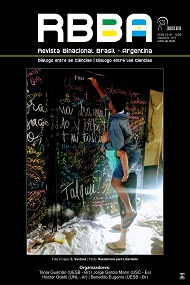MOTIVATION TO STUDY ENGINEERING CAREERS: A STUDY WITH A GENDER PERSPECTIVE AT THE FACULTY OF ENGINEERING AT THE NATIONAL UNIVERSITY OF LA PLATA
DOI:
https://doi.org/10.22481/rbba.v9i1.6933Keywords:
Engineering, Women, Genre, Latin AmericaAbstract
This work focuses on the problem at a global level about the low number of young people, in particular women, who study science and engineering careers. This is part of a larger problem that has to do with the gender gap and the low accessibility of women to education and, especially, science education. Based on a research group on science education at the Faculty of Engineering of the National University of La Plata, we intend to contribute to discuss this phenomenon, for which a questionnaire was built as an instrument to obtain data about the motivation expressed by a group of students from the mentioned Faculty to choose their careers. The results indicate that high school and the family are the educational and social areas that most influence the choice of young women in general, and women in particular, to study engineering careers. In addition, it appears that they do not have female models of reference for their choices. What was observed will serve as a basis to generate educational, political and / or social strategies that collaborate with greater accessibility, motivation and interest on the part of women in the study of science and engineering careers.
Downloads
References
ARANGO GAVIRIA, L. G. Género e ingeniería: la identidad profesional en discusión. Revista Colombiana de Antropología, Bogotá: Instituto Colombiano de Antropología e Historia, Colombia, v. 42, 2006, p.129-156.
ARIAS, A. C. Mujeres universitarias en la Argentina. Algunas cuestiones acerca de la Universidad Nacional de La Plata en las primeras décadas de siglo XX». Trabajo Final de la Especialización en Educación en Géneros y Sexualidades Facultad de Humanidades y Ciencias de la Educación Universidad Nacional de La Plata, 2017.
BONDER, G. Las nuevas tecnologías de información y las mujeres: reflexiones necesarias. CEPAL, 2002.
CONFEDI. “Matilda y las mujeres en ingeniería en América Latina”. Universidad FASTA Ediciones, Argentina, 2018.
GARCÍA, Y.; GONZÁLEZ, D.S. M.R.; OVIEDO, F.B. Actividades STEM en la formación inicial de profesores: nuevos enfoques didácticos para los desafíos del siglo XXI. Diálogos educativos, 2017, no 33, p. 35-46.
GARCÍA-HOLGADO, A., CAMACHO DÍAZ, A., & GARCÍA-PEÑALVO, F.J. La brecha de género en el sector STEM en América Latina: Una propuesta europea, 2019.
GÓMEZ, D.R.; ROQUET, J. V. Metodología de la investigación. Universitat Oberta de Catalunya, 2009.
LALANNE, T., & SOLANET, M. (2019). ¿Dónde están las mujeres en las carreras de ingeniería?: el caso argentino.
ROSSITER, M. W. The Matthew Matilda effect in science. Social studies of science, 1993, vol. 23, no 2, p. 325-341.
RUIZ, M. A. O., CÓRDOBA, E. C., SALAS, B. V., & WIENNER, M. S. La motivación de las mujeres por las carreras de ingeniería y tecnología. Entreciencias: Diálogos en la sociedad del conocimiento,4(9), 89-96, 2016.
ONU Mujeres. (2019). Generación Igualdad: Por los derechos de las mujeres y un futuro igualitario. 2019. Disponible en: https://www.unwomen.org/es/digitallibrary/publications/2019/05/generation-equality. Recuperado el 20 de mayo de 2019.
UNESCO, 2019. Descifrar el código: la educación de las niñas y las mujeres en ciencias, tecnología, ingeniería y matemáticas (STEM). Paris, Francia, 2019. Título original: Cracking the code: Girls' and women's education in science, technology, engineering and mathematics (STEM) Publicado en 2017 por la Organización de las Naciones Unidas para la Educación, la Ciencia y la Cultura. 2019. Recuperado el 20 de mayo de https://unesdoc.unesco.org/ark:/48223/pf0000366649.locale=es Recuperado el 20 de mayo de 2019.






